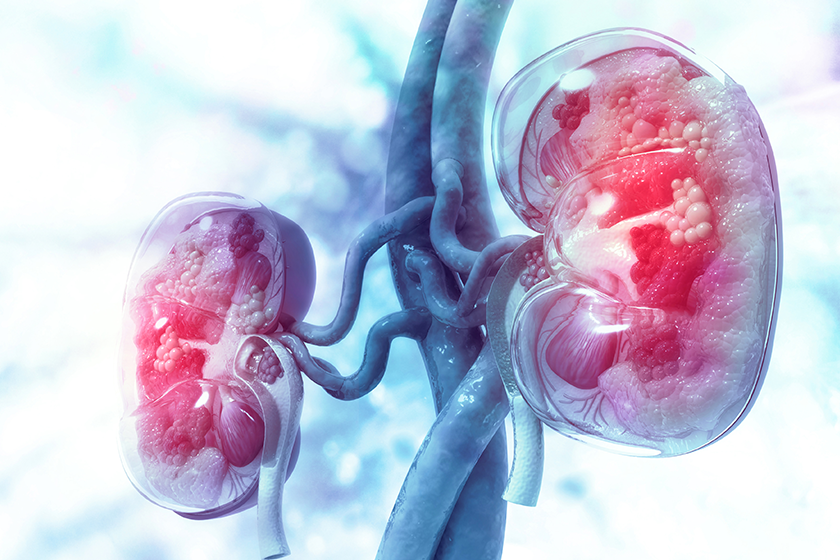Kidney disease often progresses silently, particularly among older adults. By the time symptoms emerge, significant kidney damage may have already occurred. Understanding how to diagnose kidney disease in seniors can help you take timely steps to manage the condition and safeguard your loved one’s health.
Understanding the Importance of Kidney Health in the Elderly
As people age, their kidneys naturally lose some filtering capacity. However, this decline is exacerbated by underlying conditions such as diabetes, high blood pressure, and heart disease. Recognizing the signs and acting early can help maintain kidney function and improve quality of life.
Healthcare providers recommend regular kidney function tests for individuals at higher risk. These tests can identify kidney disease even before symptoms develop, making proactive management possible. Risk factors like family history or existing medical conditions make routine testing a necessary part of healthcare for the elderly.
Blood Tests: A Window into Kidney Function
One of the primary methods to diagnose kidney disease in older adults is a blood test that measures the glomerular filtration rate (GFR). This test assesses how well the kidneys filter waste and toxins from the blood.
According to a study in the National Institute of Diabetes and Digestive and Kidney Diseases (NIDDK), a GFR of 60 or above is considered normal, while values below 60 indicate potential kidney disease. A GFR lower than 15 signals kidney failure, requiring immediate medical attention.
Urine Testing for Detecting Early Damage
Urine testing is another important diagnostic tool for kidney disease. Specifically, it measures albumin levels in the urine, a protein that leaks from the blood into urine when kidneys are damaged.
As cited by the NIDDK, detecting albumin in the urine (albuminuria) is an early marker of kidney damage. Regular urine tests are particularly recommended for those with diabetes, as they are at an elevated risk of kidney complications.
When to Seek Diagnostic Testing
If a family member has diabetes, high blood pressure, or heart disease, diagnostic kidney tests should be part of their routine medical care. These conditions strain the kidneys over time, increasing the likelihood of developing chronic kidney disease.
Even in the absence of symptoms, regular screening can help identify issues early. Early-stage kidney disease rarely causes discomfort, but timely detection allows for intervention before complications arise.
Interpreting Test Results with Your Healthcare Provider
Test results can be complex, but your healthcare provider will interpret them to create a clear picture of your family member’s kidney health. GFR results combined with albumin levels give a more comprehensive assessment.
It is important to ask questions about what the results mean and how they guide treatment decisions. For example, mild reductions in GFR might require monitoring, while severe drops could necessitate more aggressive interventions.
Preventive Care and Ongoing Monitoring
Once kidney disease is diagnosed, ongoing monitoring becomes vital to slow its progression. This might involve regular GFR and urine albumin tests to track changes over time.
Lifestyle adjustments, such as managing blood pressure and controlling blood sugar levels, can also protect kidney health. Encourage your loved ones to follow their doctor’s advice closely, as adherence to treatment plans makes a significant difference.
How Diagnosis Leads to Better Outcomes
Early detection of kidney disease paves the way for effective management. According to research published in the American Journal of Kidney Diseases, timely intervention can slow the progression of chronic kidney disease and reduce the risk of complications like kidney failure.
Your family member’s care team may recommend medications, dietary changes, or other measures based on the severity of the disease. These steps can improve their overall health and reduce the burden of kidney disease.
Supporting Kidney Health through Early Intervention
Once kidney disease is diagnosed, it is fundamental to focus on interventions that can preserve function and improve quality of life. Early-stage kidney disease often benefits from dietary adjustments, like reducing sodium and protein intake, which help to alleviate the burden on the kidneys. Medications prescribed by your healthcare provider can also manage underlying conditions such as high blood pressure or diabetes, both of which significantly affect kidney health.
Encouraging physical activity and maintaining a healthy weight are additional steps you can take to support your loved one’s kidneys. These lifestyle changes, combined with regular check-ups and testing, allow you to monitor progress and make adjustments to the care plan as needed. Proactive involvement makes sure that kidney disease is managed effectively and your family member can maintain a fulfilling life despite the diagnosis.
Taking Action for Kidney Health
Understanding how to diagnose kidney disease in older adults empowers you to protect your loved ones. With regular testing and collaboration with healthcare providers, you can support their kidney health effectively.
By recognizing risk factors and prioritizing early detection, you are helping to create a healthier future for your family members. Make kidney health a priority and take proactive steps to preserve their well-being.







